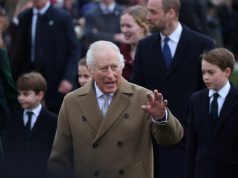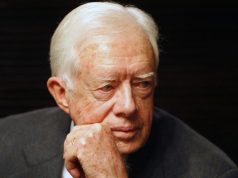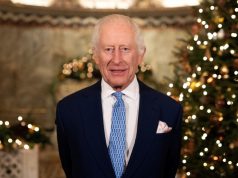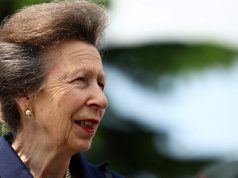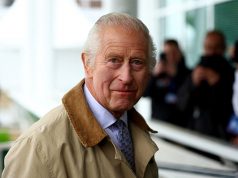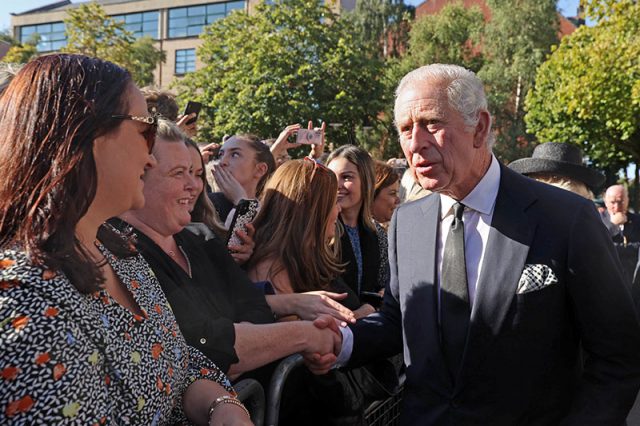
- Poll boost for Britain’s new king
- Warm words from mourners, but caution too
- Overall support for monarchy is at a low
LONDON — King Charles has enjoyed a surge in support since he succeeded Queen Elizabeth as Britain’s new monarch, a poll has shown, but some of those mourning his late mother warn he must follow her example and keep his views to himself.
A YouGov survey for the Times newspaper found backing for Charles, 73, had dramatically risen since he became king when compared with polls earlier this year. There was a similar increase in backing for his wife Camilla, the Queen Consort.
Now 63% think he will be a good king, a rise of 24 percentage points since March, while 15% believe he will do a bad job, compared with 31% six months ago, the poll published on Tuesday found.
The findings echoed the views of Britons Reuters spoke to who had come out to mourn Queen Elizabeth.
“I have every expectation that he will do extremely well,” said Patrick Thompson, 61, who was among the thousands who queued to see the late queen’s coffin at Edinburgh’s St Giles Cathedral.
“But he will have to adapt and stay quiet about his political views. He was ahead of his time on things like climate. But he will have to be much more careful now in what he says.”
Outspoken prince
Having waited longer than any other heir to become king, Charles carved out a role for himself speaking out on issues from climate change to architecture and alternative medicine.
To critics, he was interfering in political issues that were not matters for the royals, a contrast to his mother who kept her personal opinions hidden throughout her 70-year reign and never gave an interview.
But supporters say some of his views have been visionary, calling for action on the environment and sustainability decades before they became frontline issues for governments.
Since becoming king, he has repeatedly said he would follow his mother’s example, and in his first televised address to the nation, he said his role would not be the same now he was king.
“My life will of course change as I take up my new responsibilities,” he said. “It will no longer be possible for me to give so much of my time and energies to the charities and issues for which I care so deeply.”
Many who gathered at the somber ceremonies that have followed Elizabeth’s death have spoken warmly about the new monarch, with loud cries of “God Save the King” when he has appeared.
“Charles is overseeing the change seamlessly. And we need that. The monarchy is the centrifugal point of our political set up. If you don’t have a monarch then everything falls apart,” said Ellie Merton, 52, who was also in Edinburgh.
But while outpourings of grief and words of praise for Elizabeth were almost universally fulsome, there were occasional voices of doubt over Charles.
“We are in a period of transition with the royal family. It is too early to say if Charles will be popular,” said Ewan Carmichael, 16, who met the new king on Monday at an event at the Scottish parliament. “We will all be waiting to see what he is like as king before people make up their mind about him.”
Support can be fleeting
And despite the increase in Charles‘s own ratings, the survey tracking long-term sentiment towards the royals also showed the proportion of people who thought the monarchy was very important or quite important at a record low.
In recent years, such surveys have repeatedly shown an increasing divide between the generations, with young people far less supportive or just ambivalent about the monarchy.
Tuesday’s YouGov poll found 62% of respondents supported the institution, with 21% opposed, a figure largely unchanged since Charles became sovereign.
That is a reflection of how backing has declined over the last few years amid a period of turmoil for the family.
There has been the departure from their royal roles of Prince Harry and his wife Meghan, and their subsequent criticism of Buckingham Palace and even allegations of racism.
Meanwhile allegations of sex abuse levelled in the United States against Elizabeth’s second son, Prince Andrew, which led to him settling a court case, have also proved highly damaging, despite his denial of wrongdoing or any criminal charges. The furore meant he too was forced to quit his royal role.
“It does therefore seem that the successes and problems of the royal family affect how much people value the institution,” British poll expert John Curtice wrote in an article for The Conversation website.
“King Charles has inherited the crown at a time when support for the institution of the monarchy has fallen to a new low.”
Charles himself will know better than most how the public’s attitude towards the monarchy, and individual members of the royal family, can waver.
Following the death of his first wife Princess Diana in a Paris car crash in 1997, there was overt hostility in many parts towards him and Camilla, who many blamed for the break-up of what had been regarded as their fairytale marriage.
As recently as five years ago, at the 20th anniversary of Diana’s death, polls suggested the majority of people had an generally negative perception of him.
Royal biographer Robert Lacey, the historical consultant to Netflix’s hugely popular TV drama “The Crown”, said so far Charles had successfully combined leading the mourning for Elizabeth, while providing authority, humanity and reassurance.
“There was a question mark people have always inevitably thought about him as the deputy,” Lacey told Reuters. “I think in the sad circumstances, it’s a very good start, though of course the sad circumstances help — the reverence and the effectiveness prompted by death have helped as well.”




